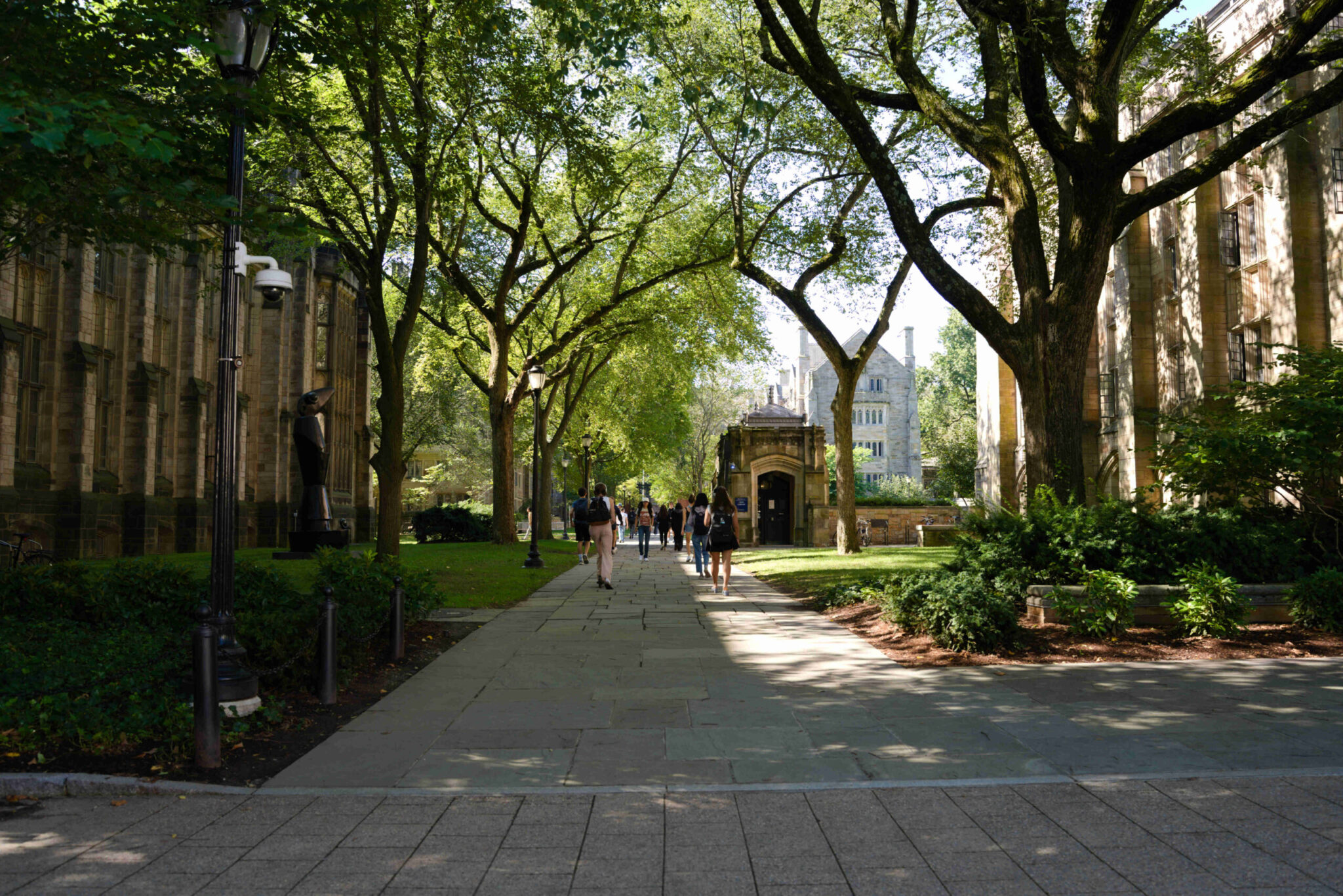YCC program will boost access to Narcan, fentanyl test strips
The Yale College Council plans to implement a second pilot program that will train students to administer Narcan kits and fentanyl test strips.

Ellie Park, Photography Editor
Following initial efforts in the spring, the University — in collaboration with the Yale College Council and Yale Emergency Medical Services — is implementing a second pilot program to train students to use Narcan, the brand name of opioid antagonist naloxone, and fentanyl test strips.
In the spring, YCC President Julian Suh-Toma ’25 and Chief of Staff Viktor Shamis-Kagan ’24 — who both worked on the health and accessibility policy team as YCC senators at the time — drafted a proposal for a pilot program aimed at increasing students’ accessibility to Narcan. The Yale College Dean’s Office approved their proposal and provided them with a $2,500 grant to purchase Narcan kits and work with student group Students for Sensible Drug Policy at Yale to distribute them.
This semester, Suh-Toma and the current YCC administration are planning to implement a second program that will provide students with fentanyl test strips in addition to Narcan kits as well as organize training for campus leaders.
“It’s also important to acknowledge as a university that students are engaging in drug use, and what we can do in order to help make campus safer is to provide resources like Narcan and fentanyl test strips,” Suh-Toma said. “And I think administrators are, and different community members are also, on the same page, and that’s why you’re seeing the expansion of these types of pilot programs.”
For the training, the Yale College Council will collaborate with Yale Emergency Medical Services and Yale Health to train student leaders in how to administer Narcan and provide Narcan kits.
“[Training] FroCos, as well as FOOT leaders, and different students who are influential and also have a lot of reach and are consistently interfacing with other students is really important,” he said.
Dean of Student Affairs Hannah Peck wrote to the News that the program is a collaborative effort between the Yale College Dean’s Office, Yale Health, Yale Emergency Medical Services and the YCC.
Peck added that students who complete training will receive Narcan and fentanyl testing strips for free and that currently, all Yale emergency medical technicians and police officers carry Narcan and are trained in administering it.
“Through this project, we hope to increase the number of people on campus who are trained to use both items and accessibility to the items on campus,” Peck said.
The expanded training and distribution will likely be implemented in the spring, per Suh-Toma. The extended timeline is mainly due to difficulty securing funding as well as the administration and the YCC’s desire to come up with the best way to provide students with these resources, he said.
“We want to see Yale provide Narcan and fentanyl test strips and other public safety measures more broadly to the community,” Suh-Toma said. “What we’re hoping for is a successful pilot program and then afterwards an expansion and see Yale take some of the responsibility to help provide these measures for students.”
According to a 2021 survey by the American College Health Association, 2.6 percent of student respondents reported using prescription opioids recreationally. Other colleges, like the University of Texas at Austin, started similar programs providing Narcan, and some states like New York and California require that Naran be provided on public college campuses.
Students for Sensible Drug Policy at Yale, or SSDP, and Yale Emergency Medical Services are also offering Narcan training this semester. The first Narcan certification course took place on Monday evening in the Dwight Hall common room.
The training was not coordinated with the Yale College Dean’s Office or the YCC. Students received Narcan kits from SSDP and YEMS, using remaining Narcan from last semester that was provided by the YCC.
Emi Glass ’26, a member of SSDP, said that training can help people feel more confident administering Narcan and can help them identify signs of an opioid overdose.
“I think giving people the opportunity to get trained can transform the conversation surrounding drug overdoses and can really empower people to make a difference in their community,” Glass told the News. “This isn’t an abstract issue. This is a way to provide students with harm reduction strategies that could potentially be life saving.”
The YCC was established in 1972.







